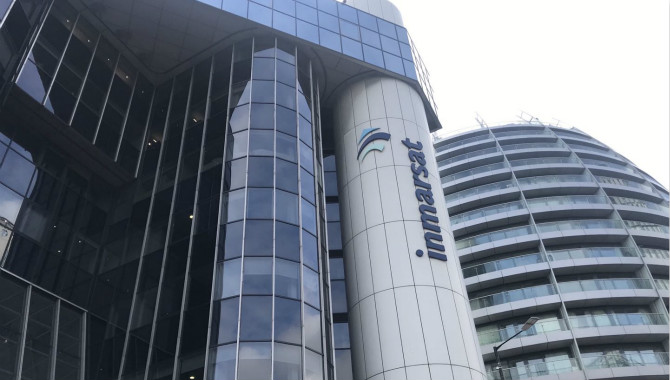
The shipping industry is now at the beginning of a fundamental transformation. The combination of the rise of connectivity and digitalisation, and the need to move away from traditional fossil fuels, means that every aspect of industry’s operating model will change over the next three decades.
“We are delighted to be the key sponsor of this excellent report into maritime startups and host its launch event at London International Shipping Week as part of our Digitalization Day”, Mr. Ronald Spithout, the President of Inmarsat announced.
“The Inmarsat community is overwhelmed with talented and expert individuals who work to deliver reliable satellite communications, creating value for our end-users but sometimes innovative ideas reside outside of our walls.This is why we’re championing open innovation, collaboration and partnership to both better serve our existing customers and open up new markets,” Mr. Ronald Spithout added.
Nowadays shipping industry has facing a first-of-its-kind sizing of the global “ShipTech” market. Analysis shows that the current value of the market is over $100b dollars today, and is set to grow to be worth $278b by 2030.Startups and investors should see the maritime sector as one of the greatest future market opportunities to develop over the next ten years.
The global maritime sector is at an inflection point. The International Maritime Organization (IMO) has committed to phasing out greenhouse gas emissions from the industry entirely by the end of the century and by at least 50% from the 2008 levels by 2050. This policy, coupled with a more immediate January 2020 deadline for banning sulphur emissions above 0.5%, will have a transformative effect on the shipping industry worldwide.The UK government has committed to strengthening the country's reputation for maritime innovation, maximising the benefits to the UK from new maritime technology through universities, maritime SMEs, and global companies as part of its Industrial Strategy. It’s more important than ever for startups, corporate suppliers, and ship operators to collaborate. The right combination of entrepreneurs, capital, and customers is required for startup driven innovation to work, and these ingredients are increasingly being brought together by a growing number of maritime accelerators operating around the world. To date, the global maritime startup accelerator community has collectively graduated 226 startups.
Another key enabler of the digital transformation of shipping is connectivity. Ships have always been about making connections, and vessel connectivity has evolved from signal flags, to radio, to basic internet over hundreds of years. There is no 4G network at sea however, and much of the innovations we have seen in the last ten years have not yet made it onto ships. As the cost of transferring data between any two points on earth becomes negligible, it will be seen that transformative technologies implemented on vessels around the world. As satellite technology advances, it’s enabling a new generation of connectivity: with ships anywhere in the world able to achieve more bandwidth at lower costs than ever before.
Just as our interview during Sea Asia 2019, Mr. Ronald Spithout said that the connection is the stage they try to get into, together with maritime industry, which obviously coincides.
As we enter Trade 2.0, the goal for our industry is clear---to utilize this opportunity to make maritime trade sustainable, safe and profitable.
The opinions expressed herein are the author's and not necessarily those of The Xinde Marine News.
Please Contact Us at:
admin@xindemarine.com



 Ningbo Containerized Freight Index Weekly Commentar
Ningbo Containerized Freight Index Weekly Commentar  Ningbo Containerized Freight Index Weekly Commentar
Ningbo Containerized Freight Index Weekly Commentar  Ningbo Containerized Freight Index Weekly Commentar
Ningbo Containerized Freight Index Weekly Commentar  BIMCO Shipping Number of the Week: Bulker newbuildi
BIMCO Shipping Number of the Week: Bulker newbuildi  Ningbo Containerized Freight Index Weekly Commentar
Ningbo Containerized Freight Index Weekly Commentar  Ningbo Containerized Freight Index Weekly Commentar
Ningbo Containerized Freight Index Weekly Commentar